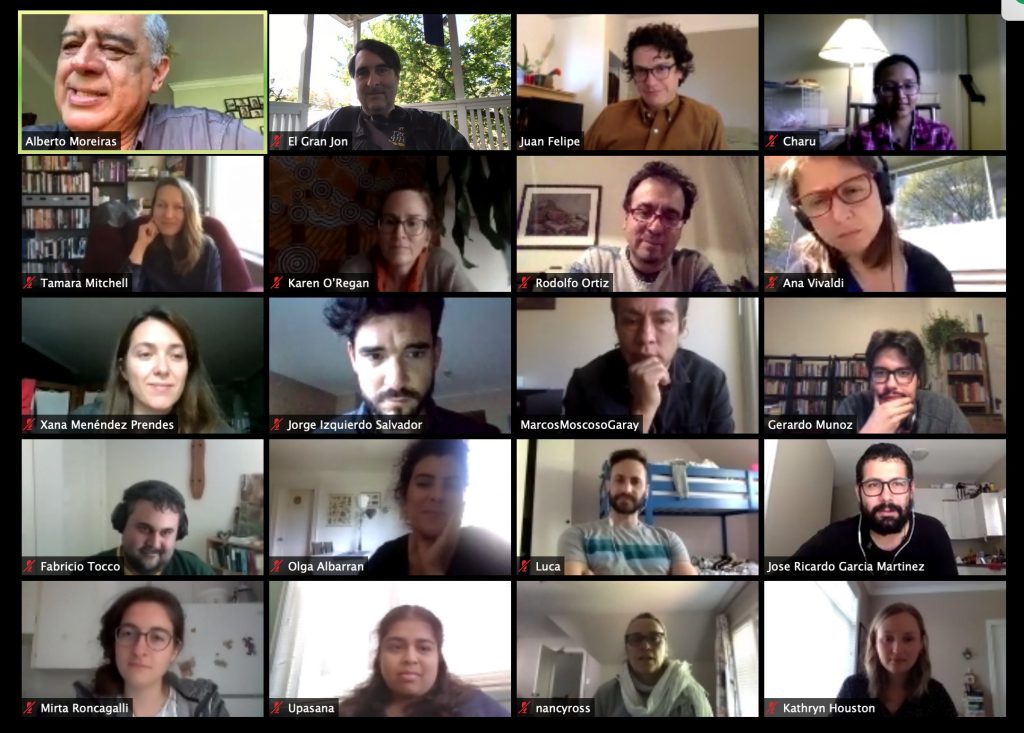Contra-pedagogía como semiótica
Algunas notas sobre “Contra-pedagogías de la crueldad. Clase 1”
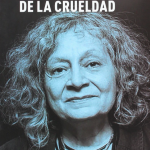
La primera clase de los seminarios impartidos por Rita Segato, que se convertirán luego en el libro Contra-pedagogías de la crueldad (2020), resume temas presentes en toda la obra de la antropóloga. La clase, al menos en su formato escrito, está dividida en diez apartados y una ronda de preguntas. Si bien, la clase es pedagógica, ésta está lejos de seguir moldes tradicionales, o al menos, Segato afirma su intención de comunicar a manera de diálogo polifónico. El fluir polifónico que registra la voz de Segato, vuelta prosa en la versión escrita de la clase, comparte saberes sobre el género, la violencia, el racismo, la colonialidad del poder y del saber, el eurocentrismo y el rol que juegan “los intelectuales” en la sociedad contemporánea. Por otra parte, hay un elemento no mencionado, pero aludido en toda la clase y éste mismo condiciona la articulación de toda la reflexión. Si la clase es polifónica y comunicativa, es porque la clase en sí misma también reflexiona sobre la posibilidad de comunicar y más aún sobre el funcionamiento de la comunicación. La comunicación fluctúa, no cristaliza interpretaciones.
Segato comenta algo particular que experimentó. Esto es, que su trabajo etnográfico en los años 70 excedía, no encajaba, o simplemente no era explicable por las categorías tradicionales con que la antropología estudiaba el género. “No tenía como nombrar lo que había encontrado” (24), dice Segato. El grupo analizado, en el que se ve cómo “un orixá coadyuvante o ‘adjunto’, un organismo biológico que sólo juega un papel en la división del trabajo ritual y un papel social que permite a mujer u hombre en sus muchas variedades ejercer el liderazgo político de la comunidad” (24) desafía completamente las normas de género convencionales. Para darle palabras al silencio antropológico, Segato dice que “recordé la gramática, con sus sustantivos masculinos y femeninos, con sus artículos masculinos y femeninos, donde masculino y femenino son atribuidos por reglas arbitrarias.” (24). Sólo dentro de la arbitrariedad lingüística es que se puede explicar la variedad de géneros, o mejor, la no reciprocidad entre cuerpo humano y su expresión sexual y lingüística. Si “el género organiza el mundo de la sexualidad, de los afectos, de los roles sociales y de la personalidad” (26), lo mismo se podría decir de la lengua y su eficacia simbólica, que, como el género, no requiere de manifestaciones abstractas ni espectaculares, sino de gestos, sonidos, manifestaciones silenciosas, constantes y reiterativas.
Casi al centro de la clase, cuando se contextualiza sobre la conceptualización de la violación como violencia expresiva, el problema del lenguaje aparece de nuevo. Los violadores entrevistados por Segato se quedan sin palabras. “Tuvimos largas conversaciones, sin límite de tiempo, lo que constituyó una oportunidad única de escudriñar el universo mental de un violador. Y uno de los temas centrales fue precisamente la ininteligibilidad de su acto [el énfasis es mío]” (39). Si para describir el género de los otros había que dejar la antropología y recurrir a la gramática, desde dónde o cómo habría que llenar ese silencio en boca de los violadores y agresores, o ¿habría que dejar la expresión tal cual es, silenciosa? Conforme prosigue la clase, se enfatiza siempre una forma de lectura semiótica, esto es, que la violencia siempre es interpretable, que siempre tiene un horizonte de sentido, de expresión y de significado, pero que también estos elementos pueden cambiar. Así es que los cuerpos de las mujeres asesinadas en Ciudad Juárez, para Segato, escriben algo. Pronto, esa espectacularización de la violencia sirve para expresar un poder soberano, o un poder de “una segunda realidad”, un poder “mafioso”. No es de sorprender así, que en otra parte Segato enfatice la necesidad de un estado “restituidor de foro étnico o comunitario [que] podrá proteger a la gente” (La guerra contra las mujeres 178). No obstante, ¿no será que el mismo estado, en cualquier variante, guarda silencio, como los violadores entrevistados por Segato, frente a todos los abusos porque precisamente el estado y los violadores comparten “ADN” [este último símil es de Segato]? Es decir, ¿no será que la violencia más peligrosa no es la espectacular —preocupante y grave—sino la violencia más silenciosa, incapaz de narrarse, o al contrario capaz de ser interpretada de tantas formas como sea posible? Más aún, si la violencia es siempre interpretable, ¿no es ésta también la misma lógica del estado, que “guarda” el monopolio de la violencia y sólo él sabe cómo leerla? Habría en el texto de Segato un atisbo de respuesta, que sugeriría pensar una contra-pedagogía como una semiótica y no como una hermenéutica. Pues semiótica y contra-pedagogía abandonan todo tipo de profesionalización, (como se lee en la ronda de preguntas), de cristalización de las interpretaciones. Con esto, se abre la posibilidad de volver a interpretar, o de no hacerlo y comenzar a conceptualizar.
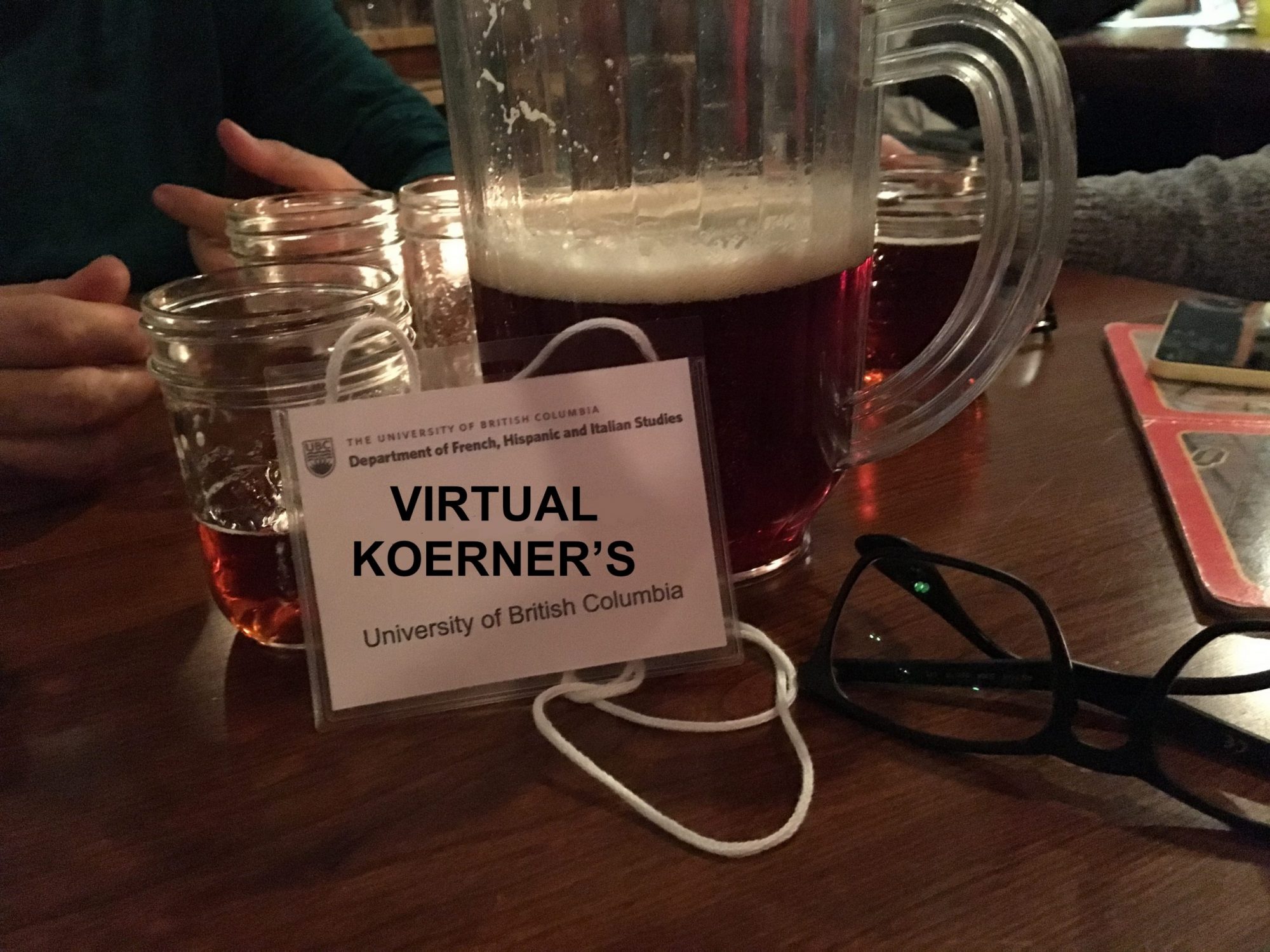
 Thanks to everyone who took part in last week’s discussion of Nelson Garrido’s work. It was an interesting and thought-provoking conversation, and we will have many questions for Nelson when he joins us on Wednesday.
Thanks to everyone who took part in last week’s discussion of Nelson Garrido’s work. It was an interesting and thought-provoking conversation, and we will have many questions for Nelson when he joins us on Wednesday. Thanks to everyone who took part in last week’s discussion. It was, I thought, a very useful conversation about Diego Sztulwark’s book,
Thanks to everyone who took part in last week’s discussion. It was, I thought, a very useful conversation about Diego Sztulwark’s book, 
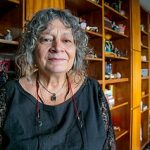 On July 1, we are very pleased to welcome
On July 1, we are very pleased to welcome 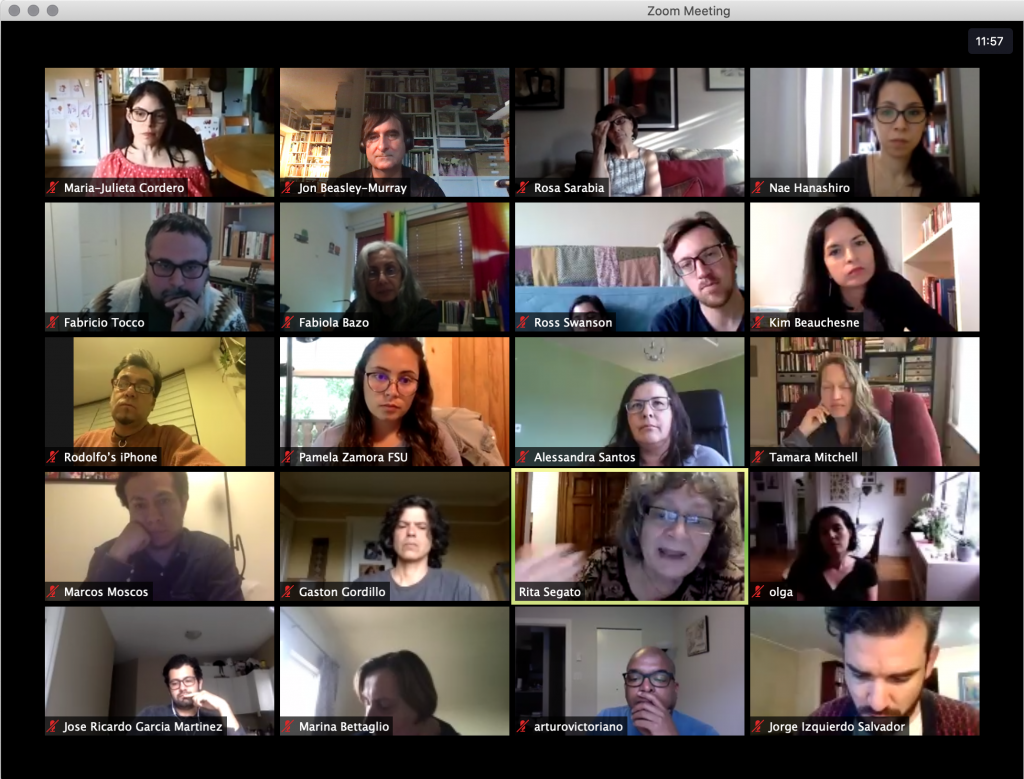
 We are delighted to start today with a discussion with
We are delighted to start today with a discussion with 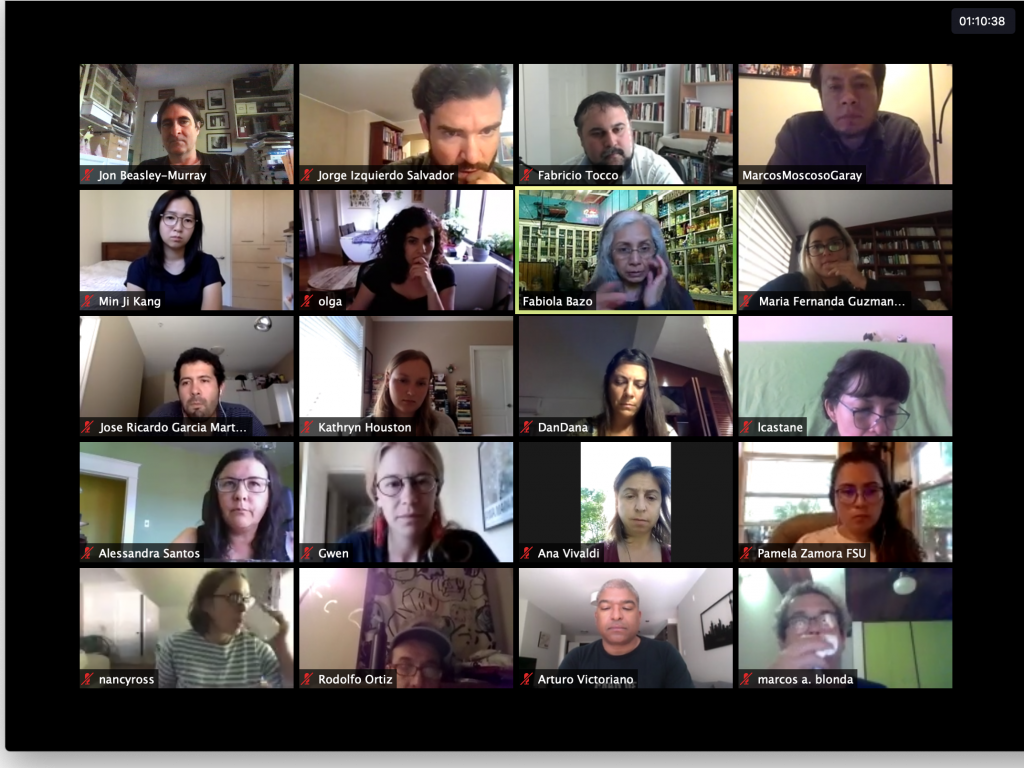
 For June 10, we will be talking with
For June 10, we will be talking with 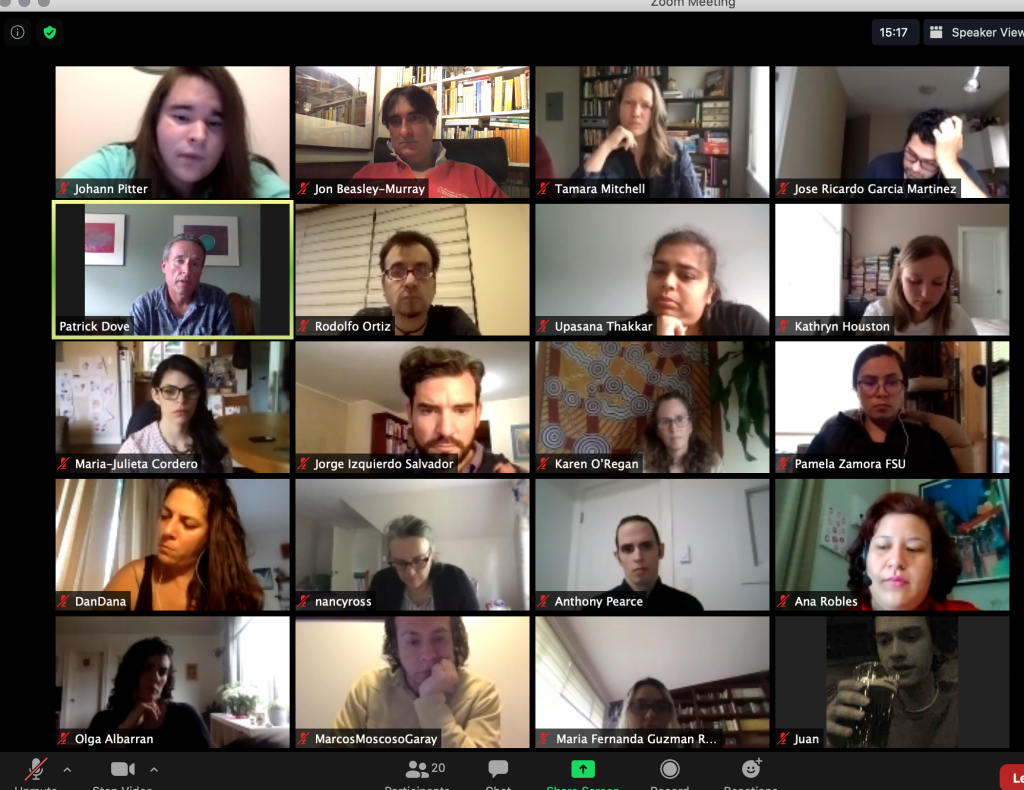
 For May 27, we will be talking with
For May 27, we will be talking with 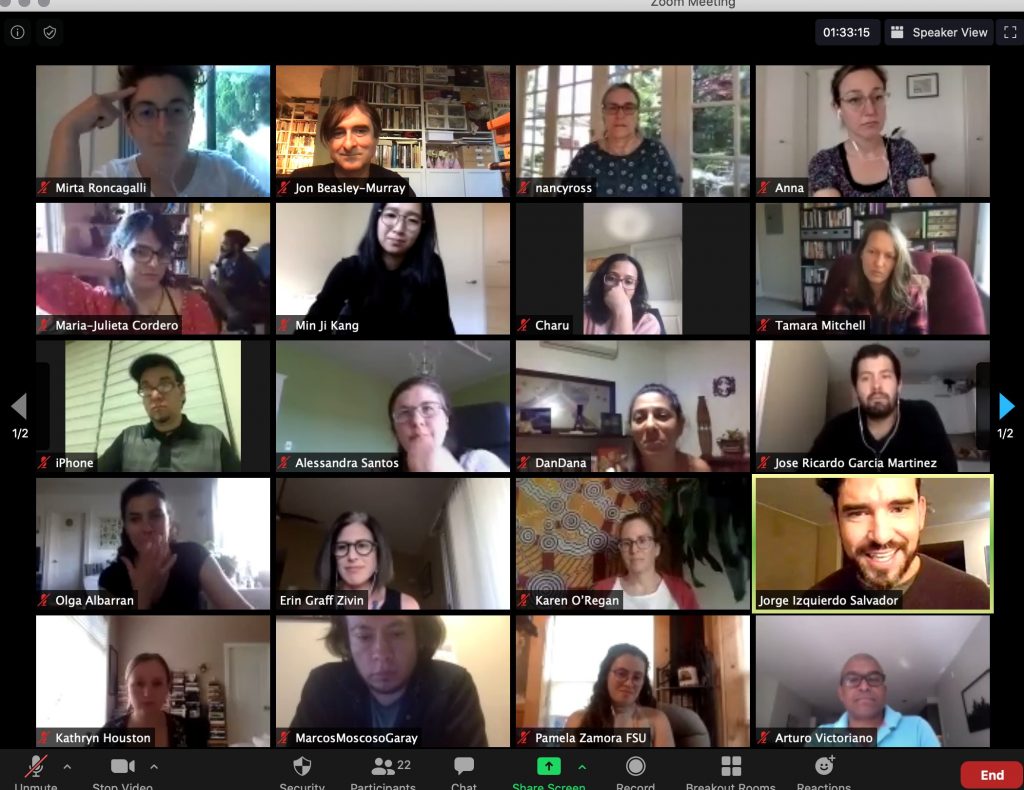
 On May 6, we were pleased to host our first special guest,
On May 6, we were pleased to host our first special guest, 